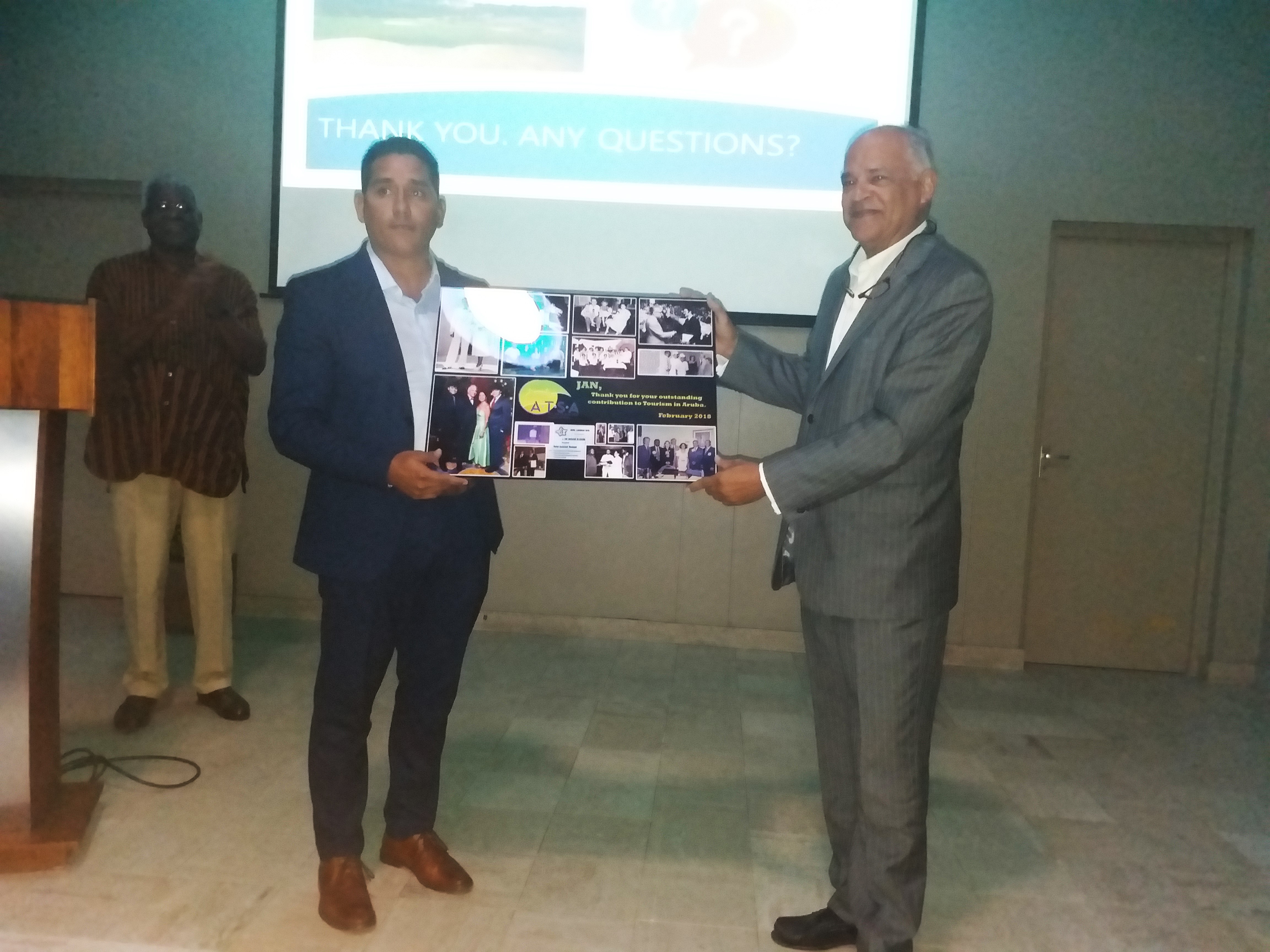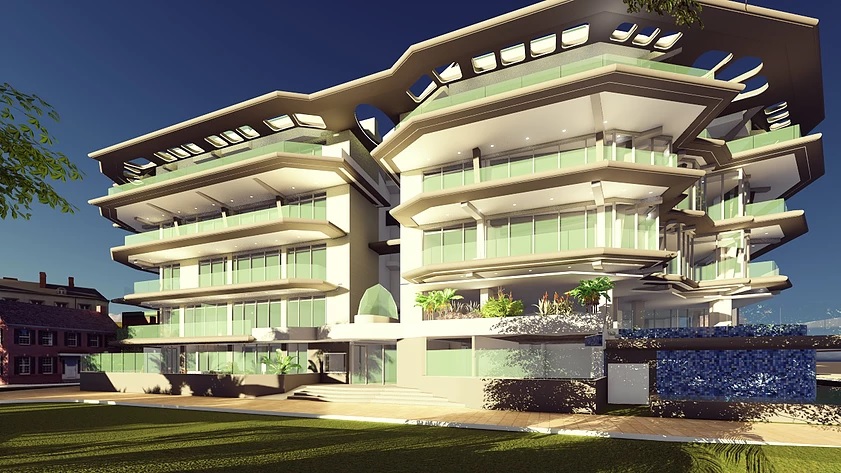ORANJESTAD – The University of Aruba (UvA) together with Aruba Tourism Authority (ATA) and Aruba Timeshare Association (ATSA) recently organized a conference where not only the celebration of 40 years of the time share industry in Aruba took place, but also important research information was shared, carried out by students of the Faculty of Hospitality and Tourism Management Studies (FHTMS).
One of the most appreciated persons in our time share industry sector and tourism in general, Jan van Nes, was honored during the interesting event. President of ATSA, Ursell Arends, mentioned during his dynamic speech that there is a new role for the social aspect within the time share sector, among others to strengthen bonds with the Red Cross and
stimulate sports for young children and teens within football club SV Britannia.
The coming five years ATSA will support these organizations. There is also a new collaboration with Centro pa Desaroyo Aruba (CEDE) who launched a complete new foundation, called Happy Community Fund. Among others they will contribute to an affordable and quality children’s care for locals. Last but not least ATSA works together with the university and supports them with funds for education.
Arends emphasizes that the students are the next generation and they are needed in the sector of tourism. However, a lot of students express that they find working in tourism unattractive due to the long hours and working on weekends/holidays. He states that it is significant for the time share sector to focus on this fact and make the work more appealing to the young generation.
Time Share & Local Economy
CEO of ATA, Ronella Tjin Asjoe-Croes, presented information and data that showcase the importance of the time share industry in Aruba. The concept of time share started in the island in 1977 with Aruba Beach Club as pioneer, followed by Playa Linda Beach Resort and many others in the 80’s and 90’s.
Time share visitors cover 26% of the total stayover visitors in Aruba during the last 20 years between 1977 and 2017. The average growth of the industry was 3.4% (5% worldwide from 2013). With regards to the affluent visitors, specifically those coming from the United States, it can be stated that there was a growth of 5.7% in 2017 compared to the year before. The market share of this group counts for 57% of the total visitors coming to Aruba between 2013 – 2017, meaning that we have an average increase of 4% between 2013 and 2017.
The effect of time share on our economy turns out to be 20% of the GDP (Gross Domestic Product). Both the inventory of time share rooms as well as the quantity of visitors/owners of weeks for time share are stable. Aruba represents the highest percentage of repeated visitors in the region of the Caribbean, time share owners are the biggest contributors to this fact. The category where to belong the time share owner is called the ‘baby boomer’ (65 years old and up).
Many bring along their families and all together contribute to our economy. Another interesting fact that was shown by the research is that almost all Time Share owners visit our island for over 10 years. They feel that Aruba is their second home and praise the friendly locals and beautiful beaches.
University Research
A group of students of the university Faculty of Hospitality and Tourism Management Studies (FHTMS) carried out profound research with regards to the time share industry under the guidance of Professor Robin di Pietro (University South Carolina) and deacon John Warlaw. The outcome was presented by the professor and showed that the majority of the tourists in Aruba are in the age category of 50-years- old and up.
The motive for visitors to purchase a time share is the satisfaction with the resort they are staying in. A time share owner shows repeated visits to the island: 70% is coming for over 10 years to the island with an average stay of 12,5 days. And, as ATA also confirmed, they bring their family members along. Their perception of the experience of the time share scores very high. The service, accommodation, environment, beaches, local people and climate are all factors that contribute to this high satisfactory score.
Different Experiences
Now with the climbing age of the time share owner in mind, the professor hinted that there is need for different experiences. The children of the time share owners will take over one day and expectations of the vacation experience will therefore change. The beaches, weather and people will not be sufficient anymore to make the difference. Aruba would need to look further and offer different experiences.
The average sum of spending per day of the time share guests is $ 112.05. An advice that came out of the research is for time share resort owners to look for collaborations with other sectors to offer the guests a variety of experiences. That will attract new potential buyers too. Work on your marketing, as the professor stated. “Put a tent at the carnival parades where your guests can enjoy this local cultural phenomenon or set up a dinner with locals on the beach, just to name some ideas.”




















